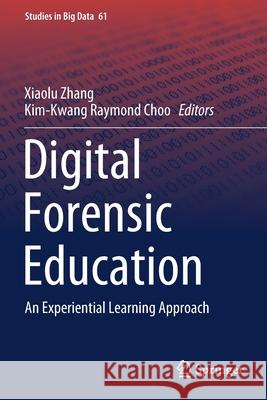Digital Forensic Education: An Experiential Learning Approach » książka
topmenu
Digital Forensic Education: An Experiential Learning Approach
ISBN-13: 9783030235499 / Angielski / Miękka / 2020 / 307 str.
Digital Forensic Education: An Experiential Learning Approach
ISBN-13: 9783030235499 / Angielski / Miękka / 2020 / 307 str.
cena 402,53
(netto: 383,36 VAT: 5%)
Najniższa cena z 30 dni: 385,52
(netto: 383,36 VAT: 5%)
Najniższa cena z 30 dni: 385,52
Termin realizacji zamówienia:
ok. 16-18 dni roboczych.
ok. 16-18 dni roboczych.
Darmowa dostawa!
Kategorie:
Kategorie BISAC:
Wydawca:
Springer
Seria wydawnicza:
Język:
Angielski
ISBN-13:
9783030235499
Rok wydania:
2020
Wydanie:
2020
Numer serii:
000472346
Ilość stron:
307
Waga:
0.45 kg
Wymiary:
23.39 x 15.6 x 1.7
Oprawa:
Miękka
Wolumenów:
01
Dodatkowe informacje:
Wydanie ilustrowane











